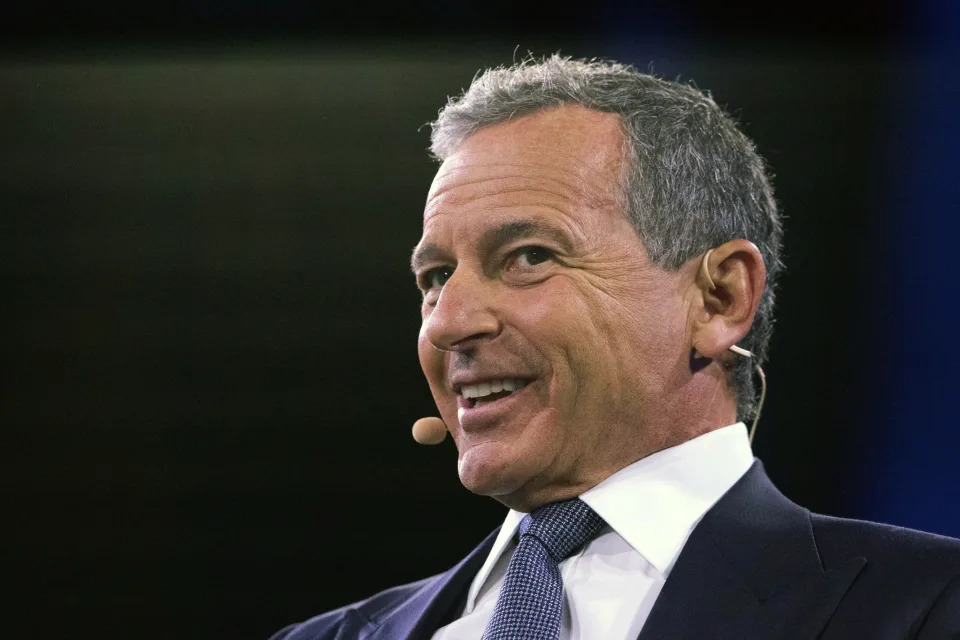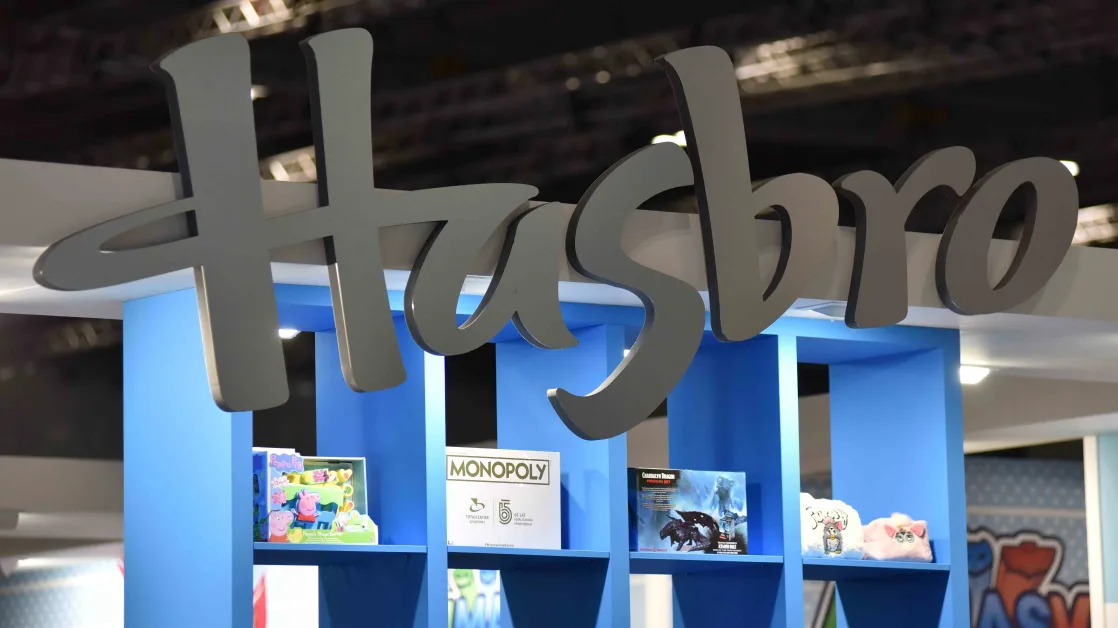Disney ( DIS ) CEO Bob Iger is hard at work searching for his replacement.
"I think it would be safe to assume that I think about [CEO succession] all the time," he said on a podcast with Kelly Ripa earlier this month . "I could say that, 'I'm obsessed with it' would be probably an understatement and actually, the board and I established when I returned that that would be among our biggest, if not our biggest priority."
But the clock is ticking, with Iger's contract set to expire in December 2026.
Last week, Disney revealed board member and former Morgan Stanley CEO James Gorman will chair the company's succession planning committee.
Gorman, who oversaw his own succession at Morgan Stanley, will be joined by chairman and former Nike CEO Mark Parker, along with board members Mary Barra, the CEO of GM, and Calvin McDonald, Lululemon's chief executive.
"There's so much speculation on who's gonna be the next CEO at Disney, and I think one thing which is fair to say is that Iger wants to do it right this time around," Third Bridge analyst Jamie Lumley told Yahoo Finance.
"It's not his first rodeo when it comes to CEO succession, and after the Bob Chapek experience [he] really wants to make sure the business is in the right position with the right person leading it."
Chapek was hand-selected by Iger as CEO in 2020, but was ousted in November 2022 after less than three years on the job, a period marred by political battles , A-list talent problems , and controversial reorganizations .
When he returned as CEO of Disney in November 2022 , Iger agreed to serve for two years. By July 2023, he'd extended that tenure to the end of 2026 .
"It was not my intention to be pulled back in," Iger told Ripa about returning to the chief executive role. "I owed it to the company that meant so much to me and had been so good to me to answer the call."
This time, he'll need to hang up the phone.

'Too many stories'
Disney has faced some tough moments since Iger's return, especially as the industry attempts to navigate the shift away from linear television.
Creative challenges at the box office, fundamental changes at ESPN, and antitrust roadblocks for its upcoming sports joint venture, among other difficulties, have pressured the company's outlook. Disney revealed earlier this month that its parks business has also slowed, citing waning demand .
"We got into the streaming business in a very, very aggressive way," Iger said at an investor conference in May. "We tried to tell too many stories. Basically, we invested too much, way ahead of possible returns. It's what led to streaming ending up as a $4 billion loss. ... I've pulled that back in a variety of ways."
Although shares have recovered from multiyear lows hit last year, the stock has fallen about 8% since Iger reclaimed the CEO position in November 2022. Shares this year are down more than 1% against a 17% gain for the S&P 500.
Disney's total streaming division turned a profit for the first time last quarter — a testament to Iger's aggressive strategy reset, which included new revenue streams like the ad-supported tier for its streaming service Disney+, in addition to price increases and password-sharing crackdowns .
Earlier this year, the company revealed its standalone ESPN streaming service will debut in fall 2025. The service will bring the entire sports network fully over the top as a direct-to-consumer (DTC) platform.
That followed another sports-related announcement from the company: ESPN's plan to team up with competitors Warner Bros. Discovery ( WBD ) and Fox ( FOXA ) for a first-of-its kind sports streaming joint venture , dubbed Venu Sports. A judge temporarily blocked the launch of Venu on antitrust concerns just weeks ahead of the start of NFL season. The three companies have appealed the decision.
"At DTC, the top line trends and content pipeline are encouraging as Disney begins to generate profits from its streaming assets on a consistent basis," Morgan Stanley analyst Ben Swinburne wrote following the company's fiscal third quarter results.
Still, the analyst said a ramp-up in technology spending will likely dent full-year 2025 operating income for the segment, categorizing it as a "likely risk."
And with Disney's box office and theme park divisions already under pressure, the stakes remain high.
"Although Disney has refound some of its mojo with recent box office hits like 'Inside Out 2' and 'Deadpool & Wolverine' there is still work to be done to get a steady flow of quality content out of its film and TV studios," Lumley said.
"Additionally, slowing revenue growth and earnings pressure for the parks and experiences segment indicate that Disney's upcoming investments in this business cannot come soon enough."
The company plans to invest $60 billion into its theme parks business over the next decade, although Disney CFO Hugh Johnston recently told Yahoo Finance that consumers are "watching their pennies a little bit more."
The company forecasts that operating profit for the parks segment will fall by a mid-single-digit percentage in the current quarter.

Succession, part two
Disney's board still has over two years until Iger's contract is up, but the effective deadline for lining up Iger's successor will come much sooner than December 2026.
"I would think by 2025 we'd see something — either in terms of an expected successor, even if not explicitly named," Matthew Dolgin, senior equity analyst at Morningstar, previously told Yahoo Finance.
But it could also depend on the state of the business.
"Iger will likely not make any succession moves until the performance of Disney’s content stabilizes across the company's various distribution channels," Lumley said. "Regardless of who ultimately succeeds Iger, investors will be looking for Disney to remain disciplined on costs and focused on building out a successful pipeline of content."
Rumors have swirled that internal names, including Dana Walden and Alan Bergman , co-chairs of Disney Entertainment; Josh D'Amaro, head of Disney's parks and experiences division; and Jimmy Pitaro , chairman of ESPN, could be next in line.
Walden joined Disney when the company acquired 21st Century Fox in 2019 and currently oversees Disney’s television studios.
"Disney really wants to make sure the content business is back up and running [through] their traditional channels, studio, linear, as well as streaming," Lumley said. "That focus on content is something which makes Dana Walden usually at the top of a lot of people's lists."
Bergman, meanwhile, leads Disney's film and studios division. He joined the company in 1996 and has served in senior leadership roles at Disney since 2001.
D'Amaro is another Disney veteran, joining the company in 1998 in a position at the Disneyland Resort. He took over the parks and experiences division in 2020 and has since navigated choppy waters, including a high-profile feud with Florida Gov. Ron DeSantis and a pandemic that brought the parks business to a complete halt.
Pitaro previously led Disney’s consumer products and interactive media division before heading up ESPN in 2018.
Other possibilities include former executives Kevin Mayer and Tom Staggs, who left the company in 2020 after Iger selected Chapek for the CEO position.
Both Mayer and Staggs, who currently run Blackstone-backed entertainment startup Candle Media, have since returned to serve as strategic advisers amid ESPN's streaming transition.
Alexandra Canal @allie_canal , LinkedIn,
"





